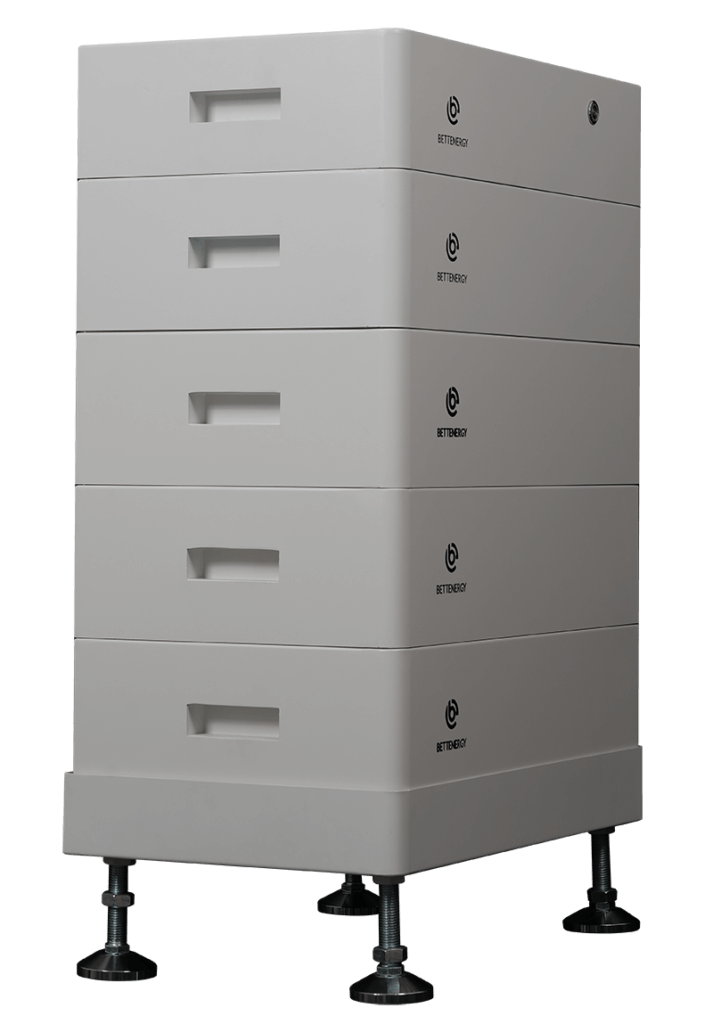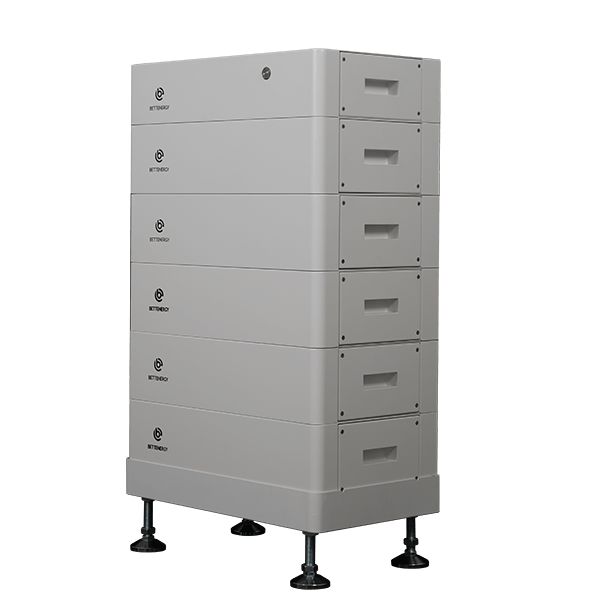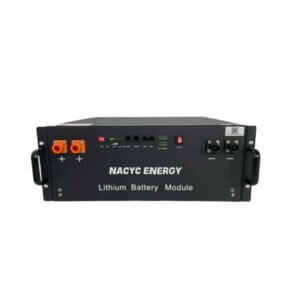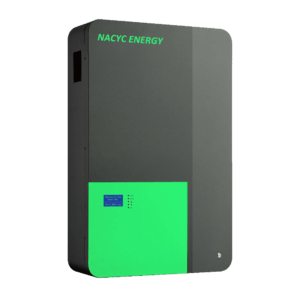Lithium Deep Cycle Battery-Stacked HV
The ELEBOX-HV lithium deep cycle battery, with its high voltage design, represents a significant advancement in energy storage technology. Excelling in both residential and commercial settings, these batteries are rated at over 100-550V, which effectively leads to lower currents within the system. This feature leads to enhanced efficiency and improved safety – a critical consideration for any energy storage device.
The added benefit of a reduced overheating risk makes these high voltage lithium deep cycle batteries a dependable, efficient, and safe choice for modern energy storage needs.
Boasting an impressive lifecycle of over 6000 charges, and supported by a 10-year warranty, the durability of these batteries is clear. The stacked design of the batteries ensures ease of installation and the flexibility to scale according to energy needs.
Furthermore, their capability for rapid charging and discharging efficiently manages sudden energy demands.
2.56 / 5.12kWh
Per Module
5.12-51.2kWh
Stackable Capacity
6000+
Charging Cycles
10 Years
Product Warranty
High Voltage Efficiency
Reducing system current and boosting efficiency. This high voltage design is key to their performance, ensuring energy is utilized more effectively and safely.
Enhanced Safety Features
Minimizes the risk of overheating, providing a safer energy storage solution for both home and commercial environments.
Longevity and Reliability
Lifespan of over 6000 cycles, backed by a 10-year warranty, these batteries promise long-term reliability.
Scalable & Easy Installation
The stacked design of the batteries allows for easy installation and scalability, suitable for diverse energy requirements, from small-scale residential to large commercial setups.

Technical Specification
| SPEC | |
|---|---|
| Nominal Voltage: | 102.4-512V (2-10PCS Stacked) |
| Nominal Capacity: | 2.56/5.12kWh Per Module |
| Dimension: | 593*355*146.5/650*418*172mm |
| Weight: | 34/48KG |
| Cell Type: | LFP |
| Max Continuous Current: | 50A |
| Communications: | CAN/RS232/RS485 |
| Life Cycles: | 6000+ |
| Warranty: | 10 Years |
| Certifications: | CE, IEC, UN38.3 |
Frequently Asked Questions
DOD refers to how much a battery can be used relative to its total capacity. Higher DOD means more usable energy. This lithium battery's DOD is as high as 90%, compared to 50% of traditional lead acid batteries.
Pros of low-voltage batteries include lower cost, easy maintenance, and better compatibility. They are more affordable, require less effort to maintain, and work well with various systems.
However, there is a drawback. When the accumulative current in the system becomes too large, it can potentially lead to safety and efficiency issues.
But for residential storage systems below 20kWh, low-voltage batteries are a more balanced and economical choice.
Choosing high voltage batteries primarily depends on two key factors:
Inverter Compatibility: The selection of high voltage batteries should be based on the specific requirements of your inverter. It's essential to ensure that the voltage range of the inverter aligns with the batteries.
Large Capacity Needs: For systems where the battery capacity exceeds 20kWh, high voltage batteries are typically the preferred choice. Their efficiency and ability to handle larger energy demands make them suitable for such high-capacity applications.
The lithium battery is designed for longevity, offering over 20 years of reliable service with good maintenance and favorable ambient conditions.
kWh stands for kilowatt-hour, a unit of energy representing the power of one kilowatt running for one hour. The duration a 5.12kWh battery can last depends on the load it's powering. For example, if you're using appliances that total up to 500 watts, the 5.12kWh battery would last for approximately 10 hours. However, for a 1000-watt load, it would last about 5 hours. The actual duration can vary based on efficiency and other factors.
- Regular Charging: Avoid complete discharges. Charge the battery regularly without letting it drop to 0%.
- Optimal Charge Levels: Maintain charge levels between 20% and 80% to reduce stress and extend battery life.
- Ambient Temperature: Store and use the battery in moderate temperatures, avoiding extremes of heat or cold.
- Proper Storage: If not in use for extended periods, store the battery at a 50-60% charge in a cool, dry place.
- Avoid Fast Charging: Unless necessary, avoid fast charging as it can increase the battery's temperature and wear it out faster.
A deep cycle battery is a type of battery designed to provide a steady amount of power over a long period. Unlike standard batteries that offer short bursts of energy, deep cycle batteries are capable of being discharged to a significant portion of their capacity without damage or reduced life expectancy. They are typically used in situations where energy needs to be supplied over extended periods, such as in solar power systems, electric vehicles, and marine applications. These batteries can undergo numerous discharge and recharge cycles, making them ideal for continuous, everyday use.







